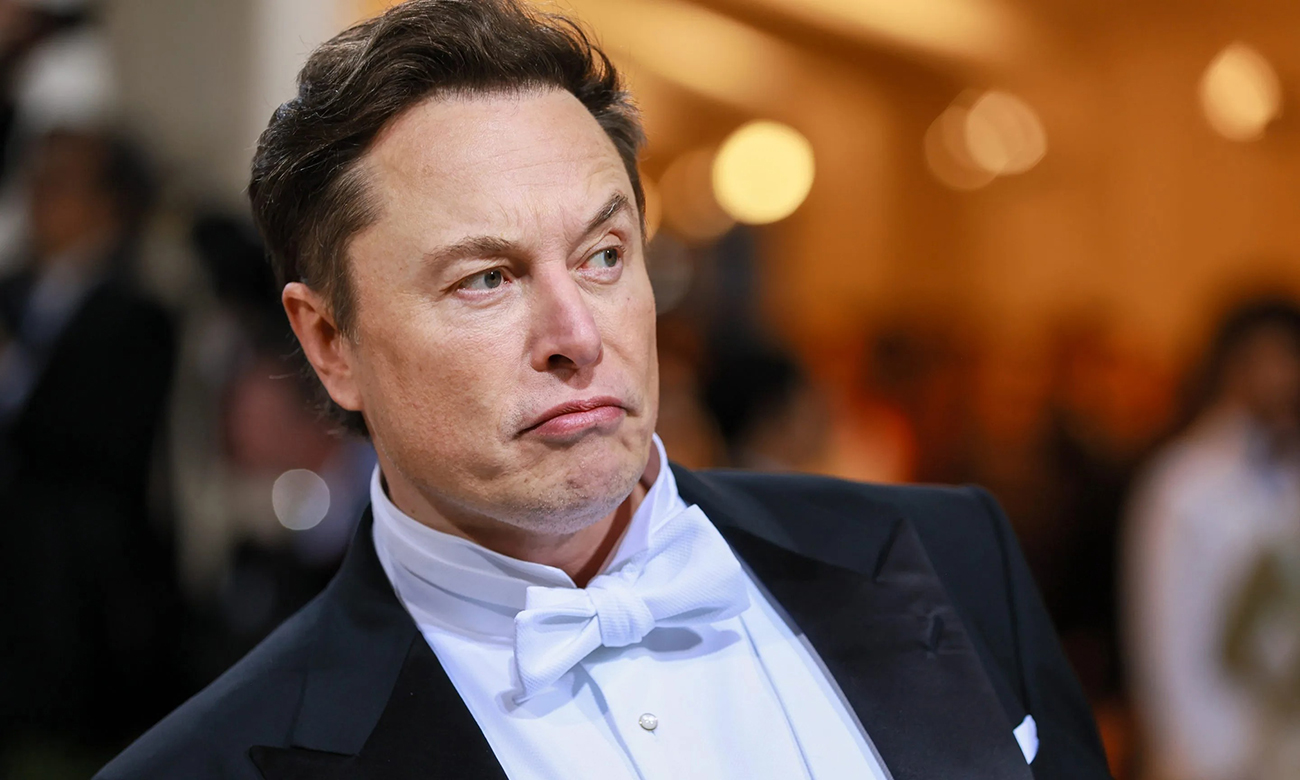
“我不是沃倫·巴菲特(Warren Buffett),?!?/p>
特斯拉公司(Tesla)首席執(zhí)行官埃隆·馬斯克在上周三的第三季度財報電話會議上如是說道?!拔也皇峭顿Y者,?!彼f?!拔沂且幻こ處?、制造者和技術專家?!?/p>
馬斯克在回答分析師關于他是否會將他所有的企業(yè)——從SpaceX到(即將納入他麾下的)推特公司——合并到一個母公司的問題時說,。巴菲特的伯克希爾·哈撒韋公司(Berkshire Hathaway)建立了一個龐大的投資組合,擁有從Dairy Queen,、金霸王到GEICO和Fruit of the Loom的一切,。
但是,就像挑食的人把盤子里的食物分開一樣,,馬斯克希望他的公司保持獨立,。“我不清楚重疊的部分是什么,。雖然不是零,,但我認為這接近于零?!?/p>
在馬斯克看來,,他是一位制造者,而不是股東:“我實際上是在工作,、設計和開發(fā)產品,。”他說,?!拔覀儾粫型顿Y組合之類的東西?!?/p>
換句話說,,馬斯克認為他和巴菲特是完全不同類型的企業(yè)家。這讓人想起21世紀10年代的制造者與索取者之爭,,爭論的核心是金融家本質上是在轉移資金(如巴菲特),,而其他人實際上正在建立一些創(chuàng)造新業(yè)務的東西(如馬斯克)。
在2012年的總統(tǒng)競選中,,來自私募股權背景的共和黨人米特?羅姆尼(Mitt Romney)的經濟批評遭到了巴拉克?奧巴馬(Barack Obama)的反駁,,“那不是你建的?!眾W巴馬當時談到了政府支持創(chuàng)業(yè)的重要性,,間接拒絕了經濟金融化,正是這種金融化讓巴菲特和羅姆尼如此富有,,盡管他當時的言論被視為對羅姆尼的抨擊,。
馬斯克似乎在說,,他永遠是建設者,而不是投資者(即使他即將成為推特公司有史以來最大的投資者),。
但馬斯克和巴菲特的共同點可能比他認為(或希望)的要多,。據彭博社報道,兩人都是億萬富翁,,位列全球最富有的十人之列,。作為世界上真正的首富,馬斯克的身價估計為2090億美元,,2020年2月疫情封城前增加了1630多億美元,。巴菲特的身價為978億美元。
樂施會(Oxfam)的一份報告顯示,,在疫情期間,,全球十大富豪的財富翻了一番。報告的作者解釋說:“最富有的1%的人擁有的全球財富是底層50%的人的近20倍,?!眻蟾嬷赋觯凹词棺罡挥械?0個人失去了他們全部財富的99.999%,,他們每個人仍然比世界上99%的人更富有,?!?
看來,,如果做得好,成為“索取者”或“制造者”可以讓你走上成功之路,。馬斯克可能并不想創(chuàng)建傘形公司結構,,而且還沒有做出他曾經承諾的可以與喜詩糖果(See’s)相媲美的糖果,但這兩人并不像馬斯克想讓你相信的那樣不同,。
至少,,他們的銀行賬戶不是那么不同。(財富中文網)
譯者:中慧言-王芳
“我不是沃倫·巴菲特(Warren Buffett),?!?/p>
特斯拉公司(Tesla)首席執(zhí)行官埃隆·馬斯克在上周三的第三季度財報電話會議上如是說道?!拔也皇峭顿Y者,。”他說,?!拔沂且幻こ處煛⒅圃煺吆图夹g專家,?!?/p>
馬斯克在回答分析師關于他是否會將他所有的企業(yè)——從SpaceX到(即將納入他麾下的)推特公司——合并到一個母公司的問題時說,。巴菲特的伯克希爾·哈撒韋公司(Berkshire Hathaway)建立了一個龐大的投資組合,擁有從Dairy Queen,、金霸王到GEICO和Fruit of the Loom的一切,。
但是,就像挑食的人把盤子里的食物分開一樣,,馬斯克希望他的公司保持獨立,。“我不清楚重疊的部分是什么,。雖然不是零,,但我認為這接近于零?!?/p>
在馬斯克看來,,他是一位制造者,而不是股東:“我實際上是在工作,、設計和開發(fā)產品,。”他說,?!拔覀儾粫型顿Y組合之類的東西?!?/p>
換句話說,,馬斯克認為他和巴菲特是完全不同類型的企業(yè)家。這讓人想起21世紀10年代的制造者與索取者之爭,,爭論的核心是金融家本質上是在轉移資金(如巴菲特),,而其他人實際上正在建立一些創(chuàng)造新業(yè)務的東西(如馬斯克)。
在2012年的總統(tǒng)競選中,,來自私募股權背景的共和黨人米特?羅姆尼(Mitt Romney)的經濟批評遭到了巴拉克?奧巴馬(Barack Obama)的反駁,,“那不是你建的?!眾W巴馬當時談到了政府支持創(chuàng)業(yè)的重要性,,間接拒絕了經濟金融化,正是這種金融化讓巴菲特和羅姆尼如此富有,,盡管他當時的言論被視為對羅姆尼的抨擊,。
馬斯克似乎在說,他永遠是建設者,,而不是投資者(即使他即將成為推特公司有史以來最大的投資者),。
但馬斯克和巴菲特的共同點可能比他認為(或希望)的要多。據彭博社報道,,兩人都是億萬富翁,,位列全球最富有的十人之列,。作為世界上真正的首富,馬斯克的身價估計為2090億美元,,2020年2月疫情封城前增加了1630多億美元,。巴菲特的身價為978億美元。
樂施會(Oxfam)的一份報告顯示,,在疫情期間,,全球十大富豪的財富翻了一番。報告的作者解釋說:“最富有的1%的人擁有的全球財富是底層50%的人的近20倍,?!眻蟾嬷赋觯凹词棺罡挥械?0個人失去了他們全部財富的99.999%,,他們每個人仍然比世界上99%的人更富有,。”
看來,,如果做得好,,成為“索取者”或“制造者”可以讓你走上成功之路。馬斯克可能并不想創(chuàng)建傘形公司結構,,而且還沒有做出他曾經承諾的可以與喜詩糖果(See’s)相媲美的糖果,,但這兩人并不像馬斯克想讓你相信的那樣不同。
至少,,他們的銀行賬戶不是那么不同,。(財富中文網)
譯者:中慧言-王芳
“I’m not Warren Buffett.”
So declared Tesla CEO Elon Musk during the EV company’s third-quarter earnings call on Wednesday. “I’m not an investor,” he said. “I am an engineer and manufacturing person and a technologist.”
Musk was responding to an analyst’s question about whether he would incorporate all his ventures—from SpaceX to (soon) Twitter—under a parent corporation. Buffett’s Berkshire Hathaway has built a large investment portfolio that owns everything from Dairy Queen and Duracell to GEICO and Fruit of the Loom.
But, much like a picky eater with a divided plate, Musk wants to keep his companies separate. “It’s not clear to me what the overlap is. It’s not zero, but I think we’re reaching.”
In Musk’s eyes, he’s a maker, not a shareholder: “I actually work and design and develop products,” he said. “We’re not going to have a portfolio of investments or whatever.”
In other words, Musk thinks he’s a totally different type of entrepreneur than Buffett. It recalls the makers versus takers debate of the 2010s, which centers around the idea that financiers are essentially moving money around (like Buffett) while others are actually building something that creates new businesses (like Musk).
In the 2012 presidential campaign, the economic critiques of Republican Mitt Romney, from a private equity background, were met with Barack Obama’s rejoinder, “You didn’t build that.” Obama was speaking about the importance of government support for entrepreneurship, an implicit rejection of the financialization of the economy that made Buffett and Romney so wealthy, although his remarks at the time were seen as a swipe at Romney.
Musk seems to be saying he will always be a builder and not an investor (even if he’s about to become Twitter’s biggest-ever investor).
But Musk and Buffett may have more in common than Musk might think (or want). Both are billionaires, among the 10 richest people in the world, per Bloomberg. As the actual richest person in the world, Musk is worth an estimated $209 billion, up by more than $163 billion pre-lockdown in February 2020. Buffett is valued at $97.8 billion.
During the pandemic, the world’s 10 richest men doubled their wealth, according to an Oxfam report. “The top 1% have captured nearly 20 times more global wealth than the bottom 50% of humanity,” explained the authors of the report, noting that “if the 10 richest men lost 99.999% of their combined wealth, each of them would still be richer than 99% of the world.”
It seems that being a “taker” or a “maker,” if done right, can set you on a path to success. Musk may not be looking to create an umbrella company structure and has yet to make the candy that rivals See’s he once promised to, but the two men aren’t as different as Musk would like you to believe.
At least, their bank accounts aren’t.






